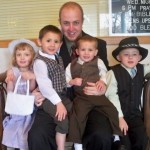Monthly Archives: June 2020
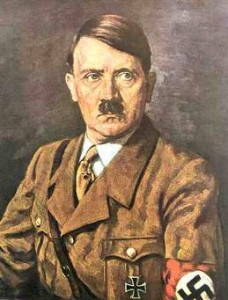 Adolf Hitler was a greedy man. From the time he decided to get into politics, he planned on controlling Germany, and eventually the rest of the world. Hitler was appointed chancellor on January 30, 1933. It didn’t take long for him to begin his fundamental change of Germany. His plan was always to be a dictator, but it’s hard to do that when the country holds national elections periodically. That said, the first thing Hitler needed to do was to make Germany a one-party state. That way, they could have the pretense of holding elections, but only one candidate would run. So, on June 22, 1933, Hitler banned all other parties, thereby making Germany a one-party state.
Adolf Hitler was a greedy man. From the time he decided to get into politics, he planned on controlling Germany, and eventually the rest of the world. Hitler was appointed chancellor on January 30, 1933. It didn’t take long for him to begin his fundamental change of Germany. His plan was always to be a dictator, but it’s hard to do that when the country holds national elections periodically. That said, the first thing Hitler needed to do was to make Germany a one-party state. That way, they could have the pretense of holding elections, but only one candidate would run. So, on June 22, 1933, Hitler banned all other parties, thereby making Germany a one-party state.
Of course, even Hitler couldn’t get this done that easily. He had to ease into it a bit. In March 1933, he pushed through the Enabling Act, which was an amendment to the Weimar Constitution, passed in the Reichstag by a vote of 444 to 94. This new amendment allowed Hitler and his cabinet to pass laws…even laws that violated the constitution…without the consent of the president or the Reichstag. It was the beginning of a very dangerous era in German history. A two-thirds majority was required to pass the bill, so the Nazis used intimidation tactics, as well as the provisions of the Reichstag Fire Decree to keep several Social Democratic deputies from attending, and the Communists had already been banned. It was a rigged passing, and should never have been allowed to happen, but the people didn’t understand the ramifications. Then, on May 10th, the government seized the assets of the Social Democrats. The party was banned on June 22, 1933. On June 21st, the SA raided the offices of the German National People’s Party, who were at one time, their coalition partners. That party was forced to disband on June 29th. It didn’t take long for the remaining major political parties followed suit. On July 14, 1933, the transition was complete when Germany became a one-party state with the passage of a law decreeing the Nazi Party to be the sole legal party in the country. It was further declared that the founding of new parties was illegal, and all remaining political parties in Germany were banned.
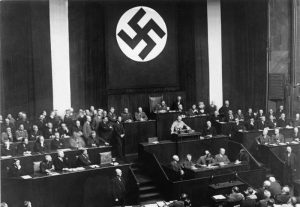
The Enabling Act would subsequently serve as the legal foundation for the dictatorship the Nazis established. Further elections in November 1933, 1936, and 1938 were Nazi-controlled, with only members of the Party and a small number of independents elected. Then, Hitler banned all other parties making Germany a one political party country, the National Socialist party was the only party that then existed in Germany. This change came after several other changes in 1933, including creation of the German Secret State Police (Gestapo) and the banning of Trade Unions. The death penalty was declared for anti-fascists. Today, Germany is a multi-party nation.
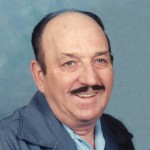

 Father’s Day is a holiday that is harder for me since my dad and my father-in-law have gone to Heaven. Nevertheless, I feel very honored to have had the dads that I did. Both of my dads, Allen Spencer and Walt Schulenberg, were both men of honor, of whom we were all able to be so proud. They loved their families unconditionally, and we were so blessed to know them. I know they are both in Heaven now, and very happy. While we miss them, they are both doing so well, and are living in their reward. I can just picture them now…smiling, happy, well, and strong. I couldn’t ask for anything more for them.
Father’s Day is a holiday that is harder for me since my dad and my father-in-law have gone to Heaven. Nevertheless, I feel very honored to have had the dads that I did. Both of my dads, Allen Spencer and Walt Schulenberg, were both men of honor, of whom we were all able to be so proud. They loved their families unconditionally, and we were so blessed to know them. I know they are both in Heaven now, and very happy. While we miss them, they are both doing so well, and are living in their reward. I can just picture them now…smiling, happy, well, and strong. I couldn’t ask for anything more for them.
As to Father’s Day…well, it has taken on a new meaning these days. Now, after thinking about the dad’s who aren’t with us, my thoughts center on the dads that are in my life today…my husband, Bob Schulenberg; sons-in-law, Kevin Petersen and Travis Royce; and my grandson, Chris Petersen. All of the dads who are still with us are wonderful men, who love their families deeply. Their children are their greatest blessings. They are all great dads. The one thing I have noticed about these men is the different parenting styles. They are different, but all great dads, and in the end, they all have one thing in common. They love their families. No family could ask for anything more, because they already have the very best.
Life is hectic, whether these guys are retired or working. They are busy and yet they still find time to be there for the people they love. They are always doing things that make the lives of their families better. Each of these men are talented in different ways, and it is those talents that have blessed their families so much. Each was 

 unique, and yet very special in their own ways, but each has endeared himself to me because of their special talents. I love the way they have enriched the lives of me, my kids, grandkids, and great granddaughter. I couldn’t ask for better men for any of us. Happy Father’s Day to the dads in my life, and to all the dads out there.
unique, and yet very special in their own ways, but each has endeared himself to me because of their special talents. I love the way they have enriched the lives of me, my kids, grandkids, and great granddaughter. I couldn’t ask for better men for any of us. Happy Father’s Day to the dads in my life, and to all the dads out there.
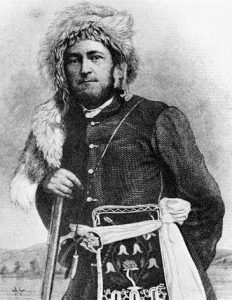 Many people who love the era of the Cowboys and Indians, also find themselves intrigued by the Mountain Men. These men were the epitome of the “wild” west. The Mountain Men were often what many might call “social rejects,” because they lived in the wilderness, hunted and fished to sustain themselves, and were often trappers who sold their furs to supplement their living. All that seems rather normal, but they were also reclusive, and often had long hair and a bushy beard. I suppose that many people would think that our opinion of the mountain men was discriminatory, but we have always had some concerns over those who were so very different. Maybe we even associated the mountain men with lawlessness. They often lived in the wilderness, because the were non-conformists when it came to the law. It wasn’t that they wanted to rob banks and kill people, but rather that they wanted to be free to live their lives the way they saw fit, without all the rules and regulations of society.
Many people who love the era of the Cowboys and Indians, also find themselves intrigued by the Mountain Men. These men were the epitome of the “wild” west. The Mountain Men were often what many might call “social rejects,” because they lived in the wilderness, hunted and fished to sustain themselves, and were often trappers who sold their furs to supplement their living. All that seems rather normal, but they were also reclusive, and often had long hair and a bushy beard. I suppose that many people would think that our opinion of the mountain men was discriminatory, but we have always had some concerns over those who were so very different. Maybe we even associated the mountain men with lawlessness. They often lived in the wilderness, because the were non-conformists when it came to the law. It wasn’t that they wanted to rob banks and kill people, but rather that they wanted to be free to live their lives the way they saw fit, without all the rules and regulations of society.
One such mountain man, was Joe Meek, who was born in Virginia in 1810. Meek was a friendly and relentlessly good-humored young man. Unfortunately, Meek did not have a the same interest in school, that he did to be a friendly, funny guy. In reality, his biggest problem was that he had too much energy to sit still and learn. After finally giving up on schooling, at 16 years old, Meek moved west to join two of his brothers in Missouri. Meek later found a need to read and write, and so taught himself, but his spelling and grammar were said to be “highly original” throughout his life.
In early 1829, Meek joined William Sublette’s ambitious expedition to begin fur trading in the Far West. This was the perfect lifestyle for Meek, and he found himself flourishing. Meek traveled throughout the West for the next decade, thoroughly enjoying the adventure and independence of the mountain man life. Meek was an average man, standing 6 feet 2 inches tall. He wore a heavy beard, and became a favorite character at the annual mountain-men rendezvous, where he regaled his companions with humorous and often exaggerated stories of his wilderness adventures. Meek, who was a well known grizzly hunter, claimed he liked to “count coup” on the dangerous animals before killing them, a variation on a Native American practice in which they shamed a live human enemy by tapping them with a long stick. Meek also claimed to have wrestled an attacking grizzly with his bare hands, before finally sinking a tomahawk into its brain. I suppose it might have been a tall tale, but more than one mountain man hs fought a bear. Some have won, and some have not had the same outcome…sadly.
Meek may have been a misfit in society, but he had good relations with many Native Americans, and in fact, he married three Indian women during his lifetime, including the daughter of a Nez Perce chief. Still, that good relationship didn’t prevent him from getting into some squabbles with the tribes. Many of the Indians didn’t like the incursion of the mountain men into their territories, and periodically, things got hostile. In the spring of 1837, Meek was nearly killed by a Blackfeet warrior who was taking aim with his bow while Meek tried to reload his Hawken rifle. Luckily for Meek, the warrior dropped his first arrow while drawing the bow, and the mountain man had time to reload and shoot.
Finally, in 1840, Meek saw that the golden era of the free trappers was ending. He decided that it was time for a “career change.” Meek and another mountain man, along with Meek’s third wife guided one of the first wagon trains to cross the Rockies on the Oregon Trail. Once there, Meek settled in the lush Willamette Valley of western Oregon, became a farmer, and actively encouraged other Americans to join him. He could see that 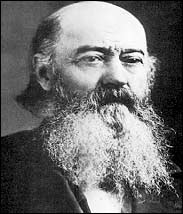 times were changing. In 1847, Meek led a delegation to Washington DC, asking for military protection from Indian attacks and territorial status for Oregon. After the long journey, Meek arrived in Washington DC “ragged, dirty, and lousy.” Nevertheless, he became something of a celebrity in the capitol…maybe a little bit like “Crocodile Dundee.” Meek was a novelty, and the Easterners relished the boisterous good humor Meek showed in proclaiming himself the “envoy extraordinary and minister plenipotentiary from the Republic of Oregon to the Court of the United States.” The trip was quite successful, and Congress responded by making Oregon an official American territory and Meek became a US marshal.
times were changing. In 1847, Meek led a delegation to Washington DC, asking for military protection from Indian attacks and territorial status for Oregon. After the long journey, Meek arrived in Washington DC “ragged, dirty, and lousy.” Nevertheless, he became something of a celebrity in the capitol…maybe a little bit like “Crocodile Dundee.” Meek was a novelty, and the Easterners relished the boisterous good humor Meek showed in proclaiming himself the “envoy extraordinary and minister plenipotentiary from the Republic of Oregon to the Court of the United States.” The trip was quite successful, and Congress responded by making Oregon an official American territory and Meek became a US marshal.
Strangely, considering his anti-social beginnings, Meek returned to Oregon and became heavily involved in politics, eventually helping to found the Oregon Republican Party. He later retired to his farm, where he died on June 20, 1875 at the age of 65.
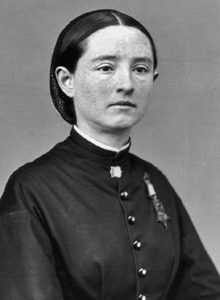 These days, we are all used to having a female doctor taking care of us. Those who haven’t are, nevertheless, not opposed to it. Others really don’t want a male doctor. It’s not a gender issue exactly, but there are women who just don’t feel comfortable with a male doctor, and men who don’t feel comfortable with a female doctor. We might have thought that this would not still be an issue all these years later, but it can be. As long as people are uncomfortable with their bodies, this might be the case.
These days, we are all used to having a female doctor taking care of us. Those who haven’t are, nevertheless, not opposed to it. Others really don’t want a male doctor. It’s not a gender issue exactly, but there are women who just don’t feel comfortable with a male doctor, and men who don’t feel comfortable with a female doctor. We might have thought that this would not still be an issue all these years later, but it can be. As long as people are uncomfortable with their bodies, this might be the case.
In the 1800s, however, this was not just an issue of discomfort, it was just not done. Mary E Walker was born in 1832, in Oswego Town near Oswego, New York. She was never one, to “hide her light,” but rather always stood out in a crowd. Even as a child, she was distinguished for her strength of mind and her decision of character. She grew into a very independent woman. Mary wanted to be useful. She had no desire to sit at home and be “just a housewife.” Mary was a feminist before most people knew what that was. She always had great energy, and in her early years, she wore bloomers, the pantaloon style garb of the radical feminists of the age. She decided to go to medical school, and when she graduated in 1855, she was the only female in her class from Syracuse Medical College. After graduation, she became one of the few women physicians in the country.
When the Civil War began in 1861, Dr Walker, who was 29 years old by then, journeyed to Washington DC and applied for an appointment as an Army surgeon. Of course, the Medical Department was…shocked, to put it mildly, and they quickly rejected her…with considerable verbosity. “A woman’s place is in the home,” or “No one will go to a woman doctor!” Dr Walker was not a woman who could be so easily discouraged. She stayed in Washington, and even served as an unpaid volunteer in various camps. Who would do that, and how did she survive without pay. Then, when the patent office was converted into a hospital, Walker served as assistant surgeon…again, without pay. During her time in the patent-office-turned-hospital, she was instrumental in establishing an organization that aided needy women who came to Washington to visit wounded relatives. It was a need that no one really thought about until she did, and it was probably reminiscent on the modern-day Ronald McDonald House.
As good as she was, Walker was not immune to considerable amounts of abuse over her persistent demands to be made a surgeon. Still, they could not dispute the fact that she also earned considerable respect for her many good works. It was about this time that she decided to abandon the bloomers and adopt a modified version of male attire, with a calf length skirt worn over trousers. She kept her hair relatively long and curled 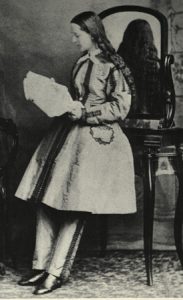 so that anyone could know she was a woman. While she wore a modified version of men’s clothes, she wanted everyone to know that she was a woman. She would not mask her talents by pretending to be a man.
so that anyone could know she was a woman. While she wore a modified version of men’s clothes, she wanted everyone to know that she was a woman. She would not mask her talents by pretending to be a man.
Finally, in November 1862, Dr Mary E Walker presented herself at the Virginia headquarters of MG Ambrose Burnside, and was taken on as a field surgeon. She was still a volunteer, but she was a titled surgeon. She treated the wounded at Warrenton and in Fredericksburg in December 1862. Almost a year later, she was in Chattanooga, Tennessee, tending the casualties of the battle of Chickamauga. After the battle, she again requested a commission as an Army doctor, such a simple thing after her years of loyal service, I would think. In September 1863, MG George H Thomas appointed her as an assistant surgeon in the Army of the Cumberland, assigning her to the 52nd Ohio Regiment. Finally, she had her commission. Now, many stories were told of her bravery under fire. Suddenly, it was ok to talk about just how incredible she was.
Sadly, she served with the 52nd Ohio Regiment for only a short time. In April 1864, Walker was captured by Confederate troops. She had stayed behind to tend wounded following a Union retirement. The Confederates charged her with being a spy and arrested her. The spy accusation came about as a result of her male attire. They said it constituted the principal evidence against her. Dr Walker spent the next four months in various prisons, being subjected to much abuse for her “unladylike” occupation and attire, until she was exchanged for a Confederate surgeon in August 1864.
In October of the same year, the Medical Department granted Dr Walker a contract as an acting assistant surgeon. Finally, 3 years after she first showed up on their doorstep she was given the rank and pay she deserved. Still, despite her requests for battlefield duty, she was not sent into the field again. She spent the rest of the war as superintendent at a Louisville, Kentucky, female prison hospital and a Clarksville, Tennessee orphanage. After she was released from her government contract at the end of the war, Walker lobbied for a brevet promotion to major for her services. Typically, Secretary of War Stanton would not grant the request. Finally, President Andrew Johnson asked for another way to recognize her service. A Medal of Honor was presented to Dr Walker in January 1866. She wore it every day for the rest of her life. She continued in the women’s rights movement and also crusaded against immorality, alcohol and tobacco, and for clothing and election reform. One of her more unusual positions was that there was no need for a women’s suffrage act, as women already had the vote as American citizens. Her taste in clothes never changed, and caused her frequent arrests on such charges as impersonating a man. At one trial, she asserted her right to, “Dress as I please in free America on whose tented fields I have served for four years in the cause of human freedom.” The judge 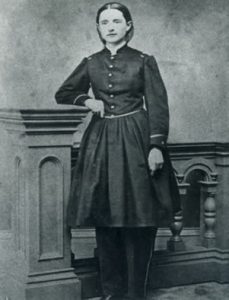 dismissed the case and ordered the police never to arrest Dr Walker on that charge again. She left the courtroom to hearty applause.
dismissed the case and ordered the police never to arrest Dr Walker on that charge again. She left the courtroom to hearty applause.
In 1916, Congress revised the Medal of Honor standards to include only actual combat with an enemy. Several months later, in 1917, the Board of Medal Awards, after reviewing the merits of the awardees of the Civil War awards, ruled Dr Walker’s medal, as well as those of 910 other recipients, as unwarranted and revoked them. It was an insult of the highest degree, and even after her death on February 21, 1919 at the age of 86, it was not to be forgotten. Nearly 60 years after her death, one of her descendants urged the Army Board for Correction of Military Records to review the case. On June 19, 1977, Army Secretary Clifford Alexander approved the recommendation to restore the Medal of Honor to Dr Mary E Walker. It was the right thing to do. Walker remains the sole female recipient of the Medal of Honor.
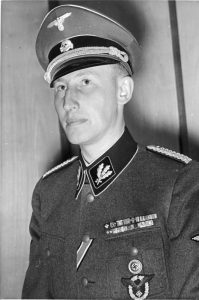 During the evil reign of the Nazi regime, we saw leaders of occupied nations being replaced by a Nazi official, who was in agreement with Hitler on the way things should be run. The deposed leader was then exiled, or worse yet, murdered. In September 1941, Reinhard Heydrich, a high-ranking Nazi official and a primary architect of the holocaust, was named Reich Protector of Bohemia and Moravia (formerly Czechoslovakia). He wasted no time in declaring martial law, and then began executing political prisoners and intelligentsia, and deported the sizable Czech Jewish community. During this time, the Czech government had been exiled to London, but they could not stand what was happening to their countrymen, so they decided to assassinate Heydrich…and so, Operation Anthropoid was born.
During the evil reign of the Nazi regime, we saw leaders of occupied nations being replaced by a Nazi official, who was in agreement with Hitler on the way things should be run. The deposed leader was then exiled, or worse yet, murdered. In September 1941, Reinhard Heydrich, a high-ranking Nazi official and a primary architect of the holocaust, was named Reich Protector of Bohemia and Moravia (formerly Czechoslovakia). He wasted no time in declaring martial law, and then began executing political prisoners and intelligentsia, and deported the sizable Czech Jewish community. During this time, the Czech government had been exiled to London, but they could not stand what was happening to their countrymen, so they decided to assassinate Heydrich…and so, Operation Anthropoid was born.
Two Czech agents, Jan Kubis and Josef Gabcik, had undergone extensive training by British intelligence, and on December 29, 1941, were successfully parachuted into Czechoslovakia. Once on the ground, they had to establish themselves, so they spent six months perfecting a plan with local resistance fighters, who were more 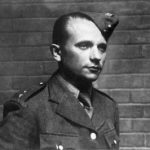
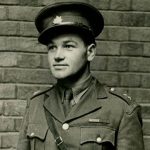 than happy to lend a hand in such an important mission. The plan was perfect. The Reich Protector didn’t think he had anything to fear from the local citizens, whom he assumed were beaten down and obedient. On May 27, 1942, Kubis and Gabcik secretly waited along Heydrich’s usual morning route to the Nazi’s Prague headquarters. Reich Protector Heydrich was an arrogant man, and he boldly rode in an open Mercedes convertible, thinking himself invincible, or at the very least well protected.
than happy to lend a hand in such an important mission. The plan was perfect. The Reich Protector didn’t think he had anything to fear from the local citizens, whom he assumed were beaten down and obedient. On May 27, 1942, Kubis and Gabcik secretly waited along Heydrich’s usual morning route to the Nazi’s Prague headquarters. Reich Protector Heydrich was an arrogant man, and he boldly rode in an open Mercedes convertible, thinking himself invincible, or at the very least well protected.
In an unfortunate turn of events, the machine gun Gabcik pointed at Heydrich, as his vehicle slowed at an L-shaped curve, misfired. Heydrich ordered his driver to stop, planning to shoot Gabcik, but Kubis tossed a 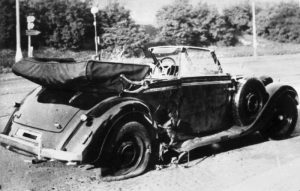 grenade and the Reich Protector’s car, which detonated near the car’s right fender. Both Kubis and Gabcik escaped and Heydrich, who initially thought he was uninjured, died on June 4, 1942. So, in the end the assassination was successful, if not strangely carried out. Unfortunately, not all resistance members are loyal, some can be bought off, and that is what happened in this case. Kubis and Gabcik were betrayed by a resistance member and died heroically, on June 18, 1942, after a gunfight with the Gestapo at a Prague church. While these men ultimately gave their lives for this cause, they were heroes, because the target, Reich Protector Heydrich was assassinated, and that was vital.
grenade and the Reich Protector’s car, which detonated near the car’s right fender. Both Kubis and Gabcik escaped and Heydrich, who initially thought he was uninjured, died on June 4, 1942. So, in the end the assassination was successful, if not strangely carried out. Unfortunately, not all resistance members are loyal, some can be bought off, and that is what happened in this case. Kubis and Gabcik were betrayed by a resistance member and died heroically, on June 18, 1942, after a gunfight with the Gestapo at a Prague church. While these men ultimately gave their lives for this cause, they were heroes, because the target, Reich Protector Heydrich was assassinated, and that was vital.
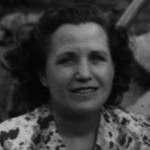 After a number of years of wondering what happened after the writing of my Aunt Bertha Schumacher Hallgren’s journals, or my reading of them…I have wondered about so many things. Bertha’s journal was so detailed and so interesting, but it left me feeling a little bit “at loose ends” about the lives of my aunt, and the Carl and Albertine Schumacher family, of which I am a part. I knew some things of course, like the fact that my Aunt Bertha had breast cancer, and that Aunt Mina had rheumatoid arthritis, as did her mom, my great grandma, Albertine Schumacher, and her siblings, my grandma, Anna Spencer and my Uncle Fred Schumacher. It left me wondering why it is that so often our lives come down to what illness we might have had? And then Aunt Bertha answers the question I had, when she said, “Only deep impressions are held in the conscious mind…ever present, while the sub-conscious may retain all experiences.” I suppose that our lives are marked by events, but surely there must be things that are more important that what disease a person had. Nevertheless, Aunt Bertha was “in my opinion” and that of my family, an excellent writer. She told the human side of history, and not just the historical events. Without the human side, history can be very boring, but you put in the hopes,
After a number of years of wondering what happened after the writing of my Aunt Bertha Schumacher Hallgren’s journals, or my reading of them…I have wondered about so many things. Bertha’s journal was so detailed and so interesting, but it left me feeling a little bit “at loose ends” about the lives of my aunt, and the Carl and Albertine Schumacher family, of which I am a part. I knew some things of course, like the fact that my Aunt Bertha had breast cancer, and that Aunt Mina had rheumatoid arthritis, as did her mom, my great grandma, Albertine Schumacher, and her siblings, my grandma, Anna Spencer and my Uncle Fred Schumacher. It left me wondering why it is that so often our lives come down to what illness we might have had? And then Aunt Bertha answers the question I had, when she said, “Only deep impressions are held in the conscious mind…ever present, while the sub-conscious may retain all experiences.” I suppose that our lives are marked by events, but surely there must be things that are more important that what disease a person had. Nevertheless, Aunt Bertha was “in my opinion” and that of my family, an excellent writer. She told the human side of history, and not just the historical events. Without the human side, history can be very boring, but you put in the hopes, 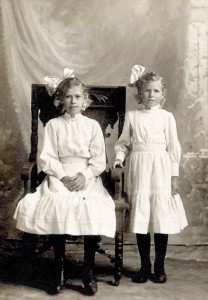 dreams, feelings, illnesses, and everyday lives of the people involved in the history being discussed. That is when history comes to life.
dreams, feelings, illnesses, and everyday lives of the people involved in the history being discussed. That is when history comes to life.
My Aunt Bertha and her sister, my Aunt Elsa took care of their parents who were ill, and in doing so, they gave up the chance to have a family of their own. They “adopted” their sister, Mina’s children as a replacement for children of their own. They both assumed that marriage was also one of those things they would have to give up, but in their latter years, both were given back that part of their lives, when they met and married their husbands, Arthur (Bertha) Hallgren and Frank (Elsa) Lawrence. Unfortunately, neither marriage lasted long, with Elsa’s ending in Frank’s death after 6 years, and Bertha’s ending in Arthur’s death after 2½ years.
Aunt Bertha fretted some when Elsa got married, not because Elsa was getting married. Bertha was happy for her, but she and Elsa had lived together all their lives to that point…42 years in all. Bertha said that it felt like a divorce…dividing up the household, “you take this and I’ll take that.” Bertha had never lived alone before. I’m sure she felt lonely…even before Elsa left. Then, after Elsa returned home when her husband passed away, when Bertha was ill, she worried about how Elsa would do when she was gone. Bertha was really very protective of her little sister, who had never lived alone. In the end, Elsa would live 17 years beyond Bertha’s life. She was ok, but I know she  missed Bertha terribly.
missed Bertha terribly.
I knew that my great grandparents were Christians, and had raised their children as Christians, and that teaching came down through the generations. Nevertheless, I was very moved by the way my aunt expressed her faith and trust in God. She knew that her life would not have been nearly as blessed as it was, if it had been lived without God in her life. I don’t know why it seems new to me, but I guess it’s because people don’t often talk about their faith, here she was, telling about the deep relationship with God. It was very moving, and sweet. Bertha was a woman who had been single for all but 2½ years of her life. She learned to depend on God…to trust Him. She loved her Lord, and I love that.
 War is inevitable, it would seem. One nation does something another nation doesn’t like, and before you know it, one is attacking the other. War is a bloody business…most of the time. However, in the case of the war between the Netherlands and the Isles of Sicily, that isn’t what happened. The war was strange in every way, and even started in a strange way. The English Civil War, which was fought between the Royalists and Parliamentarians raged from 1642 to 1651. In that war, Oliver Cromwell, who was born into the middle gentry to a family descended from the sister of Henry VIII’s minister Thomas Cromwell, was instrumental in the outcome. He became an Independent Puritan after undergoing a religious conversion in the 1630s. Cromwell generally agreed with the many Protestant churches of that time period. He was an intensely religious man, and he fervently believed that God was guiding his victories. He was elected Member of Parliament for Huntingdon in 1628 and for Cambridge in the Short (1640) and Long (1640–1649) Parliaments. Cromwell had very specific political beliefs, and when he entered the English Civil Wars, it was on the side of the “Roundheads” or Parliamentarians, nicknamed “Old Ironsides.” He demonstrated his
War is inevitable, it would seem. One nation does something another nation doesn’t like, and before you know it, one is attacking the other. War is a bloody business…most of the time. However, in the case of the war between the Netherlands and the Isles of Sicily, that isn’t what happened. The war was strange in every way, and even started in a strange way. The English Civil War, which was fought between the Royalists and Parliamentarians raged from 1642 to 1651. In that war, Oliver Cromwell, who was born into the middle gentry to a family descended from the sister of Henry VIII’s minister Thomas Cromwell, was instrumental in the outcome. He became an Independent Puritan after undergoing a religious conversion in the 1630s. Cromwell generally agreed with the many Protestant churches of that time period. He was an intensely religious man, and he fervently believed that God was guiding his victories. He was elected Member of Parliament for Huntingdon in 1628 and for Cambridge in the Short (1640) and Long (1640–1649) Parliaments. Cromwell had very specific political beliefs, and when he entered the English Civil Wars, it was on the side of the “Roundheads” or Parliamentarians, nicknamed “Old Ironsides.” He demonstrated his  ability as a commander and was quickly promoted from leading a single cavalry troop to being one of the principal commanders of the New Model Army, playing an important role under General Sir Thomas Fairfax in the defeat of the Royalist or “Cavalier” forces.
ability as a commander and was quickly promoted from leading a single cavalry troop to being one of the principal commanders of the New Model Army, playing an important role under General Sir Thomas Fairfax in the defeat of the Royalist or “Cavalier” forces.
Cromwell fought the Royalists to the edges of the Kingdom of England. In the West of England this meant that Cornwall was the last Royalist stronghold. In 1648, Cromwell pushed on until mainland Cornwall was in the hands of the Parliamentarians. The Royalist Navy was forced to retreat to the Isles of Sicily, which lay off the Cornish coast and were under the ownership of Royalist John Granville. With the Royalists on the Isles of Sicily, and the Parliamentarians in England, the war ended…at least the English Civil War ended. Immediately thereafter…on March 30, 1651, one of history’s longest wars began, between the Netherlands and the Isles of Sicily. It lasted for 335 years and was filled with bitter hatred. Still, not a single person was killed. What kind of war is that? The war that comes closest to what this was, would be  the Cold War. It was called, The Three Hundred and Thirty Five Years’ War and many will dispute its existence. It is thought that the “war” ended long before it was officially listed as over, and that the only thing that wasn’t done was to sign a peace treaty, and that one thing extended the war for 335 years without a single shot being fired. That fact made it one of the world’s longest wars, and also a bloodless war. The big problem with the validity of the war was that there was no specific declaration of war. Because of that, no one knew if they needed to negotiate a peace treaty or not. Nevertheless, because they needed to end this war, and because the declaration of a state of war was not officially know to exist, peace was finally declared on April 17, 1987, bringing an end to any hypothetical war that may have been legally considered to exist.
the Cold War. It was called, The Three Hundred and Thirty Five Years’ War and many will dispute its existence. It is thought that the “war” ended long before it was officially listed as over, and that the only thing that wasn’t done was to sign a peace treaty, and that one thing extended the war for 335 years without a single shot being fired. That fact made it one of the world’s longest wars, and also a bloodless war. The big problem with the validity of the war was that there was no specific declaration of war. Because of that, no one knew if they needed to negotiate a peace treaty or not. Nevertheless, because they needed to end this war, and because the declaration of a state of war was not officially know to exist, peace was finally declared on April 17, 1987, bringing an end to any hypothetical war that may have been legally considered to exist.

 My grand nephew, James Renville got the “travel bug” early on in his life. The first trip he took was when he was just when he was just 3 weeks old. His parents, my niece Toni Chase and her then husband, Jim Renville to their newborn son to meet his grandpa in North Dakota. Many babies don’t do well on long trips, but James was calm throughout the seven hour drive. He was such a good baby for them. The only times he fussed was when he was hungry, and then it wasn’t much fussing. Really, from that point on, James was at his most calm when he was traveling. His mom says that he “knew what vacation meant from the start.”
My grand nephew, James Renville got the “travel bug” early on in his life. The first trip he took was when he was just when he was just 3 weeks old. His parents, my niece Toni Chase and her then husband, Jim Renville to their newborn son to meet his grandpa in North Dakota. Many babies don’t do well on long trips, but James was calm throughout the seven hour drive. He was such a good baby for them. The only times he fussed was when he was hungry, and then it wasn’t much fussing. Really, from that point on, James was at his most calm when he was traveling. His mom says that he “knew what vacation meant from the start.”
Toni read somewhere, and many of us have always thought the same thing, that when you are an “only child,” like James is, that “you are likely to mature early and manifest adult behaviors an attitudes.” I’m sure it is because they around adults so much. That was never made more clear to her than when they went on the first trip that James was old enough to really know what was going on. They took James to the water park in South Dakota. He really had a blast, but he refused to go on any of the “kiddie slides” or “baby slides,” as he called them. While that was great for James, it meant that since James really was a “kiddie” or “baby” himself, he also couldn’t go on the big slides without an adult. So, his mom and dad had to go up and down the steep hills, carrying James most of the way, in the 90° heat to get to the slides. The plan had been to let the kids…James and his cousins…play for a while, and then head home in the afternoon. Well, when everyone else was ready to go…the cousins had already fallen asleep, James definitely was not. He wasn’t one bit tired, or as his mom puts it, “Not even a yawn!” They ended up staying until the park closed.
Last August, James took a trip with some friends of his. It was a chance to say goodbye to summer, and to one friend who was leaving to start his career in the Air Force. For James, it was also a way to “say goodbye” to 
 being a kid. College was over, and everything was going to be different now. The friends went to Denver to cut loose a little bit. They went to Eliches, went clubbing, and checked out some of the breweries. Toni began to think of what was coming next. She wanted things to be good for James, and he did love to travel. He had taken tips to the Netherlands and Spain, and she wanted to do something fun for him.
being a kid. College was over, and everything was going to be different now. The friends went to Denver to cut loose a little bit. They went to Eliches, went clubbing, and checked out some of the breweries. Toni began to think of what was coming next. She wanted things to be good for James, and he did love to travel. He had taken tips to the Netherlands and Spain, and she wanted to do something fun for him.
Toni and her husband, Dave Chase began to plan their own travels and some trips for James too. Things started off really well. Toni and Dave took him to a concert at Red Rocks in Denver. It was to be the first of several fun trips the family would take, including a trip to San Diego with Toni and Dave. The San Diego trip was amazing too. They spent 5 days there. They planned activities for every day. They went to an air show that Toni is sure James only went to “for her.” Then afterward, James said it wasn’t what he had expected. He said he had a great time. Then they went to a festival in La Jolla, several beaches on the ocean, the Cabrillo National Monument and the surrounding area, and the brewery district in the San Diego area…then relaxed at the resort.
After these trips, the Covid-19 Pandemic hit, and the whole world went into turmoil. For James that meant no trip to Las Vegas with his dad, Jim and the rest of their pool team for his first pool tournament, and trip that was to be the “Shangri La” of them all, James’ long awaited trip to the western coast of South America. He had planned to take that one last year, but couldn’t get the time off from his job. Now, it is all on hold, until the trips can be rearranged, and who knows how long that will be. Still, James really was born with the “traveling bug” and he has been building his skills for years. He is very driven and never wants to miss a thing. His past trips have included the Rocky Mountain Region (Wyoming, Montana, Utah, South Dakota, North Dakota, and 
 Colorado), the deserts of Nevada, the lakes of Arizona, the beaches of Florida, the ocean surrounding California, the eastern shores of Virginia and Washington DC, the costal plains of Alabama, the French Quarter of New Orleans nd Louisiana, the Ozark Mountains of Arkansas, and far beyond the northern hemisphere to see parts of the Netherlands and Spain. While some of his trips were cancelled or postponed this year, there is always next year. For James…well, next up is Peru, and it will be amazing!! Today is James’ birthday. Happy birthday James!! Have a great day!! We love you!!
Colorado), the deserts of Nevada, the lakes of Arizona, the beaches of Florida, the ocean surrounding California, the eastern shores of Virginia and Washington DC, the costal plains of Alabama, the French Quarter of New Orleans nd Louisiana, the Ozark Mountains of Arkansas, and far beyond the northern hemisphere to see parts of the Netherlands and Spain. While some of his trips were cancelled or postponed this year, there is always next year. For James…well, next up is Peru, and it will be amazing!! Today is James’ birthday. Happy birthday James!! Have a great day!! We love you!!
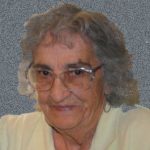
 Just under seven months ago, my Aunt Virginia Beadle left us to go to Heaven. Whenever I think of her, I picture her sweet face, always smiling gently at me. She never said a harsh word to me or anyone else I know of either. Oh I suppose she did get angry or speak harshly at some point in her life, but not in her latter years…not that I know of. Aunt Virginia just always had a sweet disposition.
Just under seven months ago, my Aunt Virginia Beadle left us to go to Heaven. Whenever I think of her, I picture her sweet face, always smiling gently at me. She never said a harsh word to me or anyone else I know of either. Oh I suppose she did get angry or speak harshly at some point in her life, but not in her latter years…not that I know of. Aunt Virginia just always had a sweet disposition.
Aunt Virginia’s heart was with her family. She loved each of them dearly. Aunt Virginia had 5 children,  one of whom, Christy passed away shortly after her birth in 1967; and one, Forrest, born in 1956, whom she adopted as a baby. Forrest passed away in 2005. Her other children were Stephen, born in 1962; Betsy, born in 1965; and Billy, born in 1969. She was very proud of all of her children, and loved them very much. Of course, with children, come the blessings of grandchildren and later, great grandchildren, and Aunt Virginia was very blessed in both of those areas too. She was also very blessed with some wonderful children-in-law, who took great care of her in her latter years. I am very proud of all of her family for the care they gave her. As a caregiver in the past, I know that while they never feel like a burden, taking care of a parent can be a very taxing task. You would never change a thing, but you find yourself very tired while you are working to care for a parent. Aunt Virginia was able to live mostly at the homes of her children in her latter years, and with the exception of a few short nursing home stays after an illness, she did not have to move into a nursing home permanently. As most of us know, that is something many people worry might
one of whom, Christy passed away shortly after her birth in 1967; and one, Forrest, born in 1956, whom she adopted as a baby. Forrest passed away in 2005. Her other children were Stephen, born in 1962; Betsy, born in 1965; and Billy, born in 1969. She was very proud of all of her children, and loved them very much. Of course, with children, come the blessings of grandchildren and later, great grandchildren, and Aunt Virginia was very blessed in both of those areas too. She was also very blessed with some wonderful children-in-law, who took great care of her in her latter years. I am very proud of all of her family for the care they gave her. As a caregiver in the past, I know that while they never feel like a burden, taking care of a parent can be a very taxing task. You would never change a thing, but you find yourself very tired while you are working to care for a parent. Aunt Virginia was able to live mostly at the homes of her children in her latter years, and with the exception of a few short nursing home stays after an illness, she did not have to move into a nursing home permanently. As most of us know, that is something many people worry might 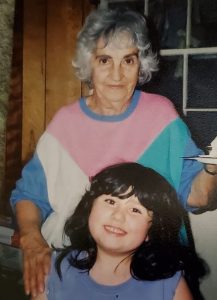
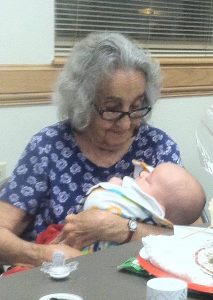 happen to them when they get older.
happen to them when they get older.
Aunt Virginia was always a tiny little woman, very petite, and at least in her latter years, rather short. I don’t know what her height was when she was younger, but the last times I saw her, I remember thinking that she was the size of a 10 or 12 year old child. Nevertheless, don’t let her size fool you. She could handle her own, at least before time took away her strength. Still, she was able to walk and take care of her own needs for the most part right up until her passing. I know that I will always have great love and respect for my dear Aunt Virginia. Today is Aunt Virginia’s 90th birthday and her first one in Heaven. Happy birthday in Heaven, Aunt Virginia. We love and miss you very much.
